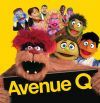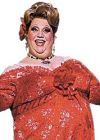Baritone? Tenor?
jaso937
Stand-by Joined: 5/20/07
#1Baritone? Tenor?
Posted: 7/29/08 at 1:37amSo i was watching Cheyenne Jackson perform a change is gonna come on Seth rudetskys site http://www.sethrudetsky.com/ and I am pretty sure i read on playbill or on broadway world that he was a baritone. Yet he totally full on belts a B above Middle C. Now I though tenors were expected to belt to an A, and i know we have been having a surgance of songs that require tenors belting past an A in full chest (Lost in the Wilderness, Made of Stone etc.). So is it now changing? Are baritones going to be expected to belt a tenor A and a tenor be expected to belt at least a B? Is all my info wrong? Please help me understand. (i did search baritones and tenors on the board but found no direct information on this topic)
#2re: Baritone? Tenor?
Posted: 7/29/08 at 1:42am
he may prefer to be classified as a "baritone" but Cheyenne can belt f*cking high D's.
he just has a really large range. some baritones do... some don't.
that's why some people will use the term "high baritone" if they're more baritone/tenor (as opposed to baritone/bass)
not that it really matters, anyway. now a day mostly every guy wants to be a TENOR. even if they don't have the proper range.
#2re: Baritone? Tenor?
Posted: 7/29/08 at 5:41ammost guys are some form of baritone in my eyes. True Basses and Tenors are rare.
#3re: Baritone? Tenor?
Posted: 7/29/08 at 7:10am
Broadway singers like Cheyenne Jackson and Matt Morrison may be classified by voice type as baritones or tenors but it is not the same as a baritone or tenor who sings opera or classical music. These singers are not only expected to sing all the notes within their voice range and above, but at full volume with no microphone enhancement whatsoever. A lot of Broadway singing today is so heavily miked that it is difficult to determine the quality of a voice since microphones make even a marginal singer sound like they have the volume of a real baritone or tenor. A lot of falsetto is used today, especially in rock oriented scores, which adds to the confusion. There is a type of classical singer called a bari-tenor, who can sing well into the tenor range at full volume if needed. Many of the early 20th Century operettas like The Merry Widow required such singers. Broadway legend John Raitt was a bari-tenor. Alfred Drake was a true baritone. Among today's singers, Paulo Szot, Nathan Gunn and newcomer James Anest have baritone voices that can sustain the high acoustic volume to also do opera if needed. Brian Stokes Mitchell is a bass-baritone with a solid operatic quality range.
This is not to say that Cheyenne Jackson is not a good singer. He is a wonderfully gifted singer for the kind of music he regularly performs. But like most of the Broadway performers today his voice is not equipped nor required to sustain the volume necessary to be heard without microphone enhancement.
In contrast, baritone James Anest, who I saw as Gaston in Beauty and the Beast, has a voice that is not only as beautiful as Jackson's but can also soar above a 100 piece symphony orchestra in a large theater with no microphone enhancement whatsoever and he also has ringing high notes well into the tenor range as well. Unfortunately, with rare exceptions, singers of this quality are not needed for today's Broadway musicals as they were in the past although Anest has managed to adapt his powerful voice to the unique demands of musical theater better than most opera singers I have heard recently. There is an interview video on Youtube with James Anest where he discusses the differences between musical theater and opera singing and voices which you may find interesting. http://www.youtube.com/watch?v=vyxzQ9O8JQs
PJC
Swing Joined: 5/23/08
#4re: Baritone? Tenor?
Posted: 7/29/08 at 7:25amAlso, the terms are properly used to describe a particular role, not a given singer's voice. For exmaple, in Tosca, Scarpia is a baritone role and Cavaradossi is a tenor role. It's perfectly feasible, although unlikely, than one male singer could play both parts if he had the range, the tonal colours and the acting chops required.
#5re: Baritone? Tenor?
Posted: 7/29/08 at 11:20am
The terms can also refer to the color of the man's voice. A man may have a wide range but have a dark sound to his voice, so he may be classified as a baritone, right or wrong.
At the same time, a man who has a bright, light sound to his voice may be termed a tenor, but may not have the true range of a tenor.
This is especially true for young singers. Some teachers refuse to classify young men's voices because they do not really develop until the late 20s into the 30s. Instead of boxing them as either baritone or tenor, such teachers simply refer to these singers as "Young Male Voices."
SporkGoddess
Broadway Legend Joined: 7/27/05
#6re: Baritone? Tenor?
Posted: 7/29/08 at 11:35am
It refers to weight as well as color. If you listen to opera, you can hear the difference in a mezzo vs. a soprano. Same goes for men--baritones tend to have heavier voices. Classification in opera is mainly so that people aren't singing against orchestrations that their voice can't handle. For instance, a tenor leggiero (sp?) would likely be drowned out by orchestrations that a baritone can sing over.
Musical theatre it's a lot stranger. For instance, Erik in Phantom of the Opera is a tenor, but baritones can play him if they have the notes.
Videos





